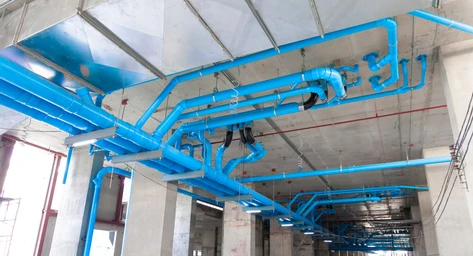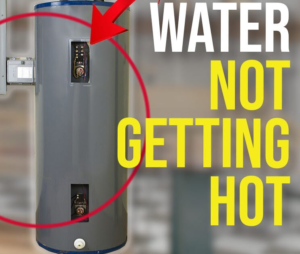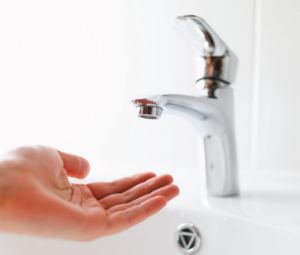Hearing a rattling noise coming from your pipes can be unnerving. It may sound like your home’s plumbing system is about to fall apart, but don’t worry—rattling pipes are usually a common issue that can be addressed with some basic troubleshooting. Ignoring the problem, however, could lead to more serious damage over time. Whether you’re hearing banging, clanging, or shaking, it’s important to diagnose the issue early and take steps to prevent further complications. In this guide, we’ll walk you through the causes of rattling pipes and how you can resolve the issue effectively.
Common Causes of Rattling Pipes
There are several reasons your pipes might start making noise, and each cause requires a specific solution. Let’s explore the most common culprits.
1. Water Hammer
Water hammer is a common cause of noisy pipes and occurs when water suddenly stops or changes direction, creating a shockwave that rattles the pipes. This often happens when a faucet or valve is shut off quickly, especially in older homes with outdated plumbing systems.
When water is moving through your pipes at high pressure, the sudden stop can cause vibrations and banging noises. Left unchecked, water hammer can eventually cause pipes to weaken or even burst.
Solution: Installing a water hammer arrestor can help absorb the shockwaves caused by the sudden changes in water pressure. These devices act as cushions and prevent the pipes from shaking. If you’re not comfortable installing this yourself, contact a professional plumber to do the job.
2. Loose Pipes
Another common cause of rattling is when your pipes are not properly secured. Over time, the brackets or straps that hold your pipes in place can become loose or break, allowing the pipes to move and vibrate when water flows through them. This movement can cause loud rattling or knocking sounds, especially when turning water on or off.
Solution: If the rattling noise is coming from a specific area, check for any visible pipes in that section. You may find that they’ve come loose from their brackets. Reattaching or tightening the brackets should fix the problem. For pipes that are not easily accessible, such as those behind walls, it’s best to hire a professional to secure them.
3. High Water Pressure
Excessively high water pressure can cause your pipes to vibrate and create a rattling sound. High water pressure can lead to more than just noisy pipes—it can also put stress on your entire plumbing system, causing leaks or pipe bursts over time.
Solution: You can measure your water pressure using a pressure gauge. If it’s above the recommended range (typically between 40 to 60 PSI), you may need to install a pressure-reducing valve (PRV) to bring it down to a safer level. This is often a job for a professional plumber, as improper installation can lead to more issues down the line.
How to Diagnose the Problem
While it’s easy to assume that all pipe rattling sounds the same, there are subtle differences that can help you pinpoint the exact cause. Here are a few diagnostic tips:
1. Determine When the Noise Occurs
Does the rattling occur when you turn on a specific faucet, or does it happen when you flush a toilet? Does it occur only at certain times of the day or when multiple fixtures are in use? These details can help narrow down the cause of the problem.
- When water is turned off suddenly: This usually points to water hammer.
- When the faucet is on: Loose pipes are likely the issue.
- During times of low usage: High water pressure could be the culprit.
2. Listen to the Location of the Noise
Try to determine where the noise is coming from. Is it concentrated in a specific room or area of your home? For example, rattling in the kitchen could be due to unsecured pipes under the sink, while noise near the water heater may indicate high water pressure or issues with the expansion tank.
3. Check for Visible Signs of Pipe Movement
If possible, inspect your exposed pipes. Do they move or vibrate when water is flowing through them? You may notice slight shaking or jerking, especially near joints and bends in the pipes.
DIY Solutions for Rattling Pipes
Once you’ve determined the cause of the rattling, you can take some DIY steps to address the issue. However, it’s important to note that not all solutions are appropriate for beginners. If you’re unsure, it’s best to contact a professional for help, especially if you’re dealing with complex plumbing systems or high water pressure.
1. Tighten Pipe Clamps and Straps
If your pipes are loose, tightening or replacing the brackets that hold them in place can resolve the rattling noise. In most cases, you’ll need pipe clamps, straps, or mounting brackets, which are available at hardware stores. Make sure to secure the pipes tightly, but not so much that they’re unable to expand and contract with temperature changes.
2. Install a Water Hammer Arrestor
Water hammer arrestors are easy to find at home improvement stores and can usually be installed without professional help. These devices are attached to the water line near the source of the hammering (typically near faucets or appliances). They absorb the shockwaves that cause rattling and banging noises, helping to protect your pipes.
3. Reduce Water Pressure
If your water pressure is too high, installing a pressure-reducing valve (PRV) can help. This device regulates the water pressure entering your home, bringing it down to a safe level. If you’re not comfortable installing a PRV yourself, reach out to a plumbing professional who can ensure the job is done correctly.
When to Call a Professional
While there are many DIY solutions for fixing rattling pipes, some situations require the expertise of a professional plumber. Here are a few scenarios where it’s best to call in the experts:
- You suspect high water pressure but don’t have the tools or experience to diagnose it.
- The pipes are rattling inside walls or floors, making it difficult to access them.
- You’ve tried tightening loose pipes and installing a water hammer arrestor, but the noise persists.
- The rattling noise is accompanied by other issues, such as water discoloration or slow drainage.
In such cases, it’s important to get the help of professionals like Chrome Heating Air Conditioning to assess the issue and provide lasting solutions in the Plano, TX area.
Preventing Future Issues
Once you’ve resolved the immediate issue, there are a few steps you can take to prevent your pipes from rattling in the future:
- Regularly inspect exposed pipes for signs of wear or movement.
- Ensure your water pressure stays within the recommended range.
- Schedule routine plumbing inspections with a licensed professional.
Preventative maintenance goes a long way in ensuring your home’s plumbing system runs smoothly. By keeping an eye on water pressure and pipe security, you can avoid the common issues that lead to rattling pipes.
Conclusion
Rattling pipes may seem like a minor inconvenience, but ignoring the problem can lead to more significant damage over time. Whether it’s due to water hammer, loose pipes, or high water pressure, diagnosing and fixing the issue early can save you from costly repairs. While there are many DIY fixes available, don’t hesitate to call a professional like Chrome Heating Air Conditioning in Plano, TX, if the problem persists or if you’re unsure of the best course of action.
FAQ
- What causes my pipes to rattle? Rattling pipes are often caused by loose pipe supports, high water pressure, or water hammer, which is a sudden surge in water flow.
- Is rattling in pipes dangerous? While not immediately dangerous, rattling pipes can lead to leaks or damage to plumbing over time if left untreated.
- Can high water pressure cause rattling pipes? Yes, excessive water pressure can cause pipes to vibrate and rattle. Installing a pressure regulator can help reduce this issue.
- What is a water hammer, and how does it affect pipes? Water hammer occurs when water flow is abruptly stopped, causing a shockwave in the pipes, leading to loud banging or rattling sounds.
- How can I stop my pipes from rattling? Securing loose pipes with proper brackets, reducing water pressure, or installing a water hammer arrestor are common fixes for rattling pipes.
- Should I call a plumber if my pipes rattle? If simple fixes like tightening pipe brackets don’t work, or if the noise persists, it’s advisable to consult a plumber to inspect for potential issues.
- Can rattling pipes cause leaks? Over time, the constant vibration can weaken joints and connections, potentially leading to leaks in the plumbing system.
- Is rattling in both hot and cold water pipes common? Yes, rattling can occur in both hot and cold water lines due to similar causes like high pressure or loose fittings.





